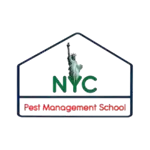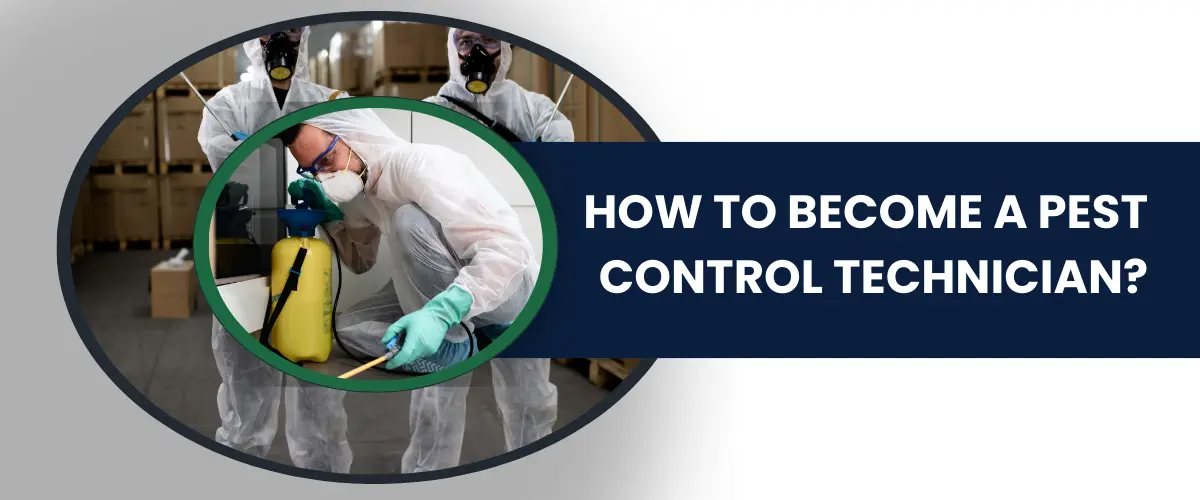If you want to know, how do you become a pest control technician, then this is the place. You will be guided through each step to achieve this, even with little or no experience in pest control. The process of becoming a pest control technician includes training, certification, and gaining experience.
Why should a person consider a career in pest control?
Pest control technicians play a vital role in protecting homes, businesses, and farms from pests like termites, mice, and bed bugs. People need to keep pests out of their homes and businesses. Pest control technicians address these issues whenever needed. This job is vital for keeping people safe and healthy. It helps maintain a clean and healthy environment.
Pest control is such a job with no end in line. With houses and companies rising, pests are bound to feature, hence the jobs too. It’s one industry that keeps on growing and a very good career that many stick with for decades.
What is a Pest Control Technician?
Pest elimination should go beyond just killing them. The technician must identify their source and find ways to prevent them. The technician should identify evidence and types of pests. They must decide on a treatment, such as using pesticides, traps, or other safe elimination methods.
Pest control technicians work tirelessly to protect people. They carefully manage chemicals to eliminate harmful insects while ensuring safety for people and pets. Hence, indeed, it’s a job working through the feelings of caring.
Knowing License Requirements of Pest Control
Most areas require a pest control technician to be licensed or certified. Pest control license requirements may vary by state. However, candidates must complete a course and pass a test.
Here is what you need to do to be a licensed pesticide technician:
- Take a course in pest control: This introduces the beginning of the work of a technician; he learns about pests, the spread, and the best way of controlling them. He is also taught how to deal with the chemicals.
- Take a Certification Test: Once you’ve finished studying the course you have to undergo a test; the test proves whether one genuinely understands whatever has been understood from taking up the course or not; a test could set you between $100 and $400 depending on location.
- Keep Learning: In fact, not even after having a license, one is supposed to discontinue learning as laws and mechanisms of pest control are prone to change. To be updated, one needs to go through classes and learn the prevailing changes.
How long is the study course for a pest controller?
How do I become a pest controller? A general program usually lasts three months. It includes classroom training on pest control and hands-on practical exposure. You can easily observe some bug types on trees and flowers. Using the wrong chemicals on them can cause their death. You need to learn how to use chemicals precisely and safely. Such training is usually provided in course programs. You do practical exposure pertaining to traps and other necessary ways of controlling pests.
In some programs, you are completed faster, for those who want to start off as early as possible; indeed, these let you acquire the needed skills to get into the job market in some months.
What is a typical day like for a pest control technician?
A pest control technician never experiences the same day twice. Different jobs arise daily due to the variety of pests. These pests are often linked to specific buildings or homes. Here is some of the stuff you could possibly do in a day:
- Pest inspection: Technicians inspect homes, offices, and other businesses to ensure that no form of pest attack is noticed, like holes in walls, droppings, and nests.
- Plan the Treatment: Based on identification, technicians come up with how best the pests can be exterminated. Most probably, they will use pesticides or traps and other means in treating the pest problem.
- Application of pesticides: The technicians need to learn about pesticides, how they can be used safely, and whether it is possible to wipe out the pests but chemicals skid away from humans and pets’ touch.
- Prevent Pests from Returning: They will then treat by placing barriers or traps that will prevent their return after treating the pests.
Work will include problem-solving, undertaking chemical treatments with due care, and ensuring that the pests never return.
How to become a pest control technician with no experience?
If you have no experience, you don’t have to worry because you can start here. The best way to start is with an introductory course. These courses cover everything, even for those new to pest control.
You will learn the basics of pest control, how pests move, what species are in your local area, and how to apply pesticides. In addition, you will get hands-on experience in practice with the equipment and chemicals used by technicians.
After completing the course and passing the test, you can start working. New technicians often train under experienced ones until they are confident to work alone.
Benefits from Careers in Pest Control
Some of the most critical reasons one should think about being a pest control technician include:
- Job Security: There are a lot of job securities, as people are always going to need pest eradication services no matter what situation. Moreover, the demand for services is going upward in the next couple of coming years.
- Work is different every day because you may be working in different locations and also find two major kinds of pests.
- You help people keep their homes and business places pest-free. You would be a pretty major contributor to the health and safety of the general public by eradicating pests from the public space.
- Learn New Skills: You will learn a lot about pests, chemicals, and tools. You also develop problem-solving and communication skills.
Challenges of being a pest control technician
The job of pest control can be very rewarding, but not without a few downsides. Here are some of the things you need to keep in mind:
- Seasonal Work: Pest control is a seasonal business where demand fluctuates according to the time of year. It mostly peaks during the summer.
- Chemical Handling: Pesticides become dangerous when applied without proper application. Extra care is required by the technician in handling the chemicals in such a way as to provide the maximum possible safety.
- Physical Demands: Everything from having to move heavy machinery to sometimes needing to squeeze into some pretty tight places to lift something, quite a lot is expected of the body of a pest control technician. It is pretty demanding work sometimes, physically.
- Long hours: Sometimes, one may work the whole day because there is a great infestation to deal with within that short period of time.
Despite all these, most people are proud of this job because it is important and rewarding.
Career Advancement in the Field of Pest Control
After getting licensed, there are several ways to further your career in pest control. Here are a few ideas:
- You may even narrow it down to one service, such as termite control, wildlife management, or fumigation. And then you will be a guru in the industry and most probably will get paid more handsomely for it.
- Open Up Your Own Business: Many technicians do go on to open their own pest control companies; you will be able to work for yourself and set your own schedule.
- Get More Certifications: After getting your basic certification, you can go for advanced certifications. These advanced certifications will increase your salary and help you become an expert in the particular field.
Why NYC Pest Management School?
NYC Pest Control School is one of those best schools from where one can start off as a technician in the pest control profession. The Pest control training course taught here is very easy to understand, and it will let you know about everything. NYC Pest Management School, by the practical training provided by expert instructors, will set you up for success in your pest control career.
FAQs
How do I become an exterminator?
One has to prepare for a certification course, pass an exam, and get practical experience to become an exterminator.
How long will it take me to be a pest control person?
Generally, it will take around three months of the training program for most courses.
The less-appealing aspects of a pest control technician’s job include the seasonal nature of such jobs and the heavy physical demands, apart from dealing with chemicals.
Conclusion
It is a good job option, becoming a pest control technician with a good income and the security of a full-time job; plus, it is one of the greatest opportunities to help people. The side job also works for this occupation; for instance, it may be one of the great opportunities to build a full-time career. For anyone, therefore, who seeks to start work within pest control, the idea of signing up to such a course, like what is offered by NYC Pest Management School, would arguably be an awesome place to start and hence find yourself on a good path towards that prosperous and rewarding career.

